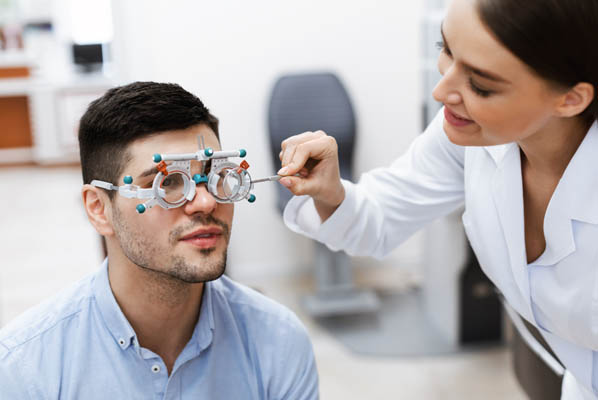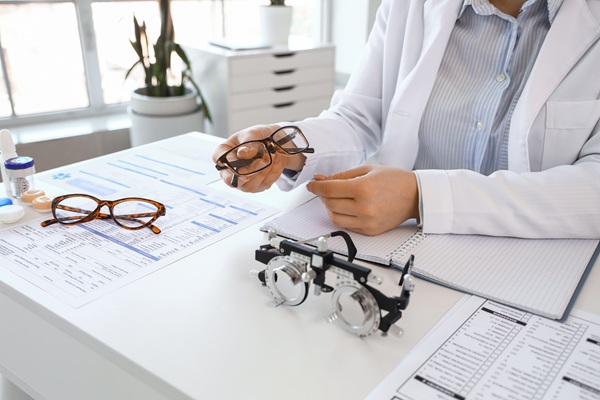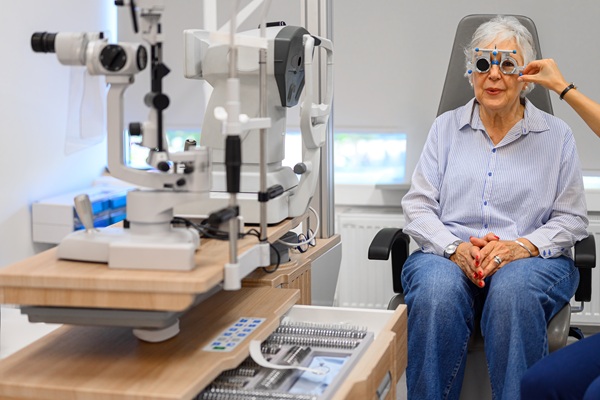How Often Should I See an Optometrist

To keep your eyes in good shape, it is important to see an optometrist regularly. Occasional eye and vision appointments are a critical part of preventive health care. Some eye and vision problems do not have any symptoms and signs so you may not be aware a problem exists. Seeing your eye doctor can help detect problems early and treat them. If you are not sure when to schedule your next eye exam, read on to find out some factors you should consider.
Eye examinations
Getting regular eye care is a vital component of maintaining healthy vision. Patients can benefit from having their eyes examined every one to two years. But depending on several factors a person may need to see an optometrist more often. These include the age of a person and medical history. Diagnosing a problem early can ensure it is treated in good time. This reduces the risk of problems becoming worse and harder to treat later on.
Age
The prevalence of vision disorders and ocular diseases increases with age. People under 40 years of age usually develop vision problems because of eye injuries or refractive errors. The prevalence of eye diseases in young adults is relatively low. But many problems can initially develop without symptoms or signs. Glaucoma can start appearing in this age group. Young adults should see optometrists every two years.
For people aged 40 through 64 years of age, their eyes should be examined at least every two years. Individuals in this age group are at a greater risk of developing eye diseases such as cataracts and glaucoma. People aged 65 and older should get a complete eye examination annually. People in this group are highly likely to develop problems because of their age. Regular visits will help them to maintain good eyesight.
At-risk patients
People who notice and experience symptoms and signs of problems should seek help as soon as any changes occur. Some symptoms that a person should watch out for are blurry vision, the presence of many floaters and light sensitivity, to name but a few. Other symptoms include seeing bright flashes and difficulty seeing at night. These symptoms may be indicators of eye and vision problems. A person with a family history of eye diseases should also see an optometrist frequently.
Systematic conditions can affect a person’s vision. The frequency of examinations can vary because of a patient’s condition. People with conditions such as diabetes and hypertension should be monitored regularly. These conditions increase the chances of developing eye and vision problems. Particular prescription and nonprescription drugs can also harm or affect the eyes.
Schedule your next appointment with your optometrist
Comprehensive eye and vision examinations can help you maintain optimal eye health. The prevalence of some problems is linked to age, particular conditions, race/ethnicity and gender. Regular visits can help in the early diagnosis and treatment of eye and vision disorders. If you are still wondering how often your eyes should be examined, contact your optometrist today.
Request an appointment here: https://brighteyesny.com or call Bright Eyes Optometry at (914) 730-9574 for an appointment in our New Rochelle office.
Check out what others are saying about our services on Yelp: Optometrist in New Rochelle, NY.
Recent Posts
An ophthalmologist visit becomes important when eye symptoms go beyond routine vision changes and signal disease, injury, or sudden shifts that need medical or surgical eye care. An ophthalmologist is a physician who diagnoses and treats eye conditions and performs eye surgery when needed.Many people search "optometrist" when they mean ophthalmologist, and the term often…
Cataract treatment can help you regain clearer vision and improved daily functioning. Professional care from an experienced optometrist offers benefits that can improve your long-term eye health and overall quality of life. The following guide outlines the three major benefits of cataract treatment provided by a trusted, experienced optometrist.During regular appointments with an optometrist, they…
Prescription glasses are an important part of clear vision and eye health. However, if you break or damage your glasses, it is important to act quickly to avoid further problems and restore your sight. Fortunately, taking care of damaged prescription glasses as soon as possible can save you time, money, and discomfort.The first step after…
Dry eye may start with mild irritation, but over time, it can begin to interfere with focus, comfort, and even quality of life. An optometrist can help when this condition becomes more than just a temporary annoyance. There are many potential causes of dry eye, including hormonal changes and seasonal allergies. With tools that reveal…


